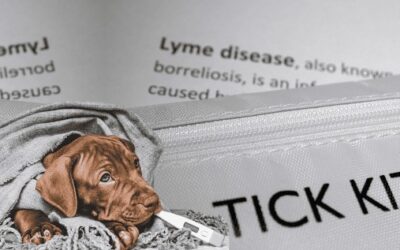My Dog Is Throwing Up White Foam

Updated October 3, 2025
When pet owners see their dogs throwing up white foam, it can be an alarming sight that triggers immediate concern. This foamy, bubbly vomit often appears when dogs experience digestive upset, but the causes can range from simple indigestion to serious medical emergencies requiring immediate veterinary attention.
Understanding what causes dogs to vomit white foam, recognizing warning signs, and knowing appropriate treatment and prevention strategies can help pet owners respond effectively and keep their furry companions safe and healthy.
What Is White Foam Vomit?
White foam vomit occurs when stomach acids, saliva, and air mix together, creating a frothy, bubbly appearance. According to veterinary experts, this type of vomiting typically happens when dogs have an empty stomach or experience digestive irritation.
The foam can vary in appearance from stringy and slimy to watery and bubbly. Sometimes, pet owners notice a slight yellow tinge from bile mixed with the white foam. The amount can range from small amounts of stringy material to larger volumes of foamy liquid.
Common Causes of White Foam Vomiting
Understanding the various reasons dogs vomit white foam helps pet owners determine the appropriate response and urgency level.
Minor Digestive Issues:
Empty Stomach/Bilious Vomiting Syndrome
Dogs often vomit white foam when their stomachs are empty for extended periods. This commonly occurs in the morning or late at night when dogs haven’t eaten for several hours. The stomach produces excess acid that irritates the lining, leading to foamy vomit.
Dietary Indiscretion
Dogs frequently eat things they shouldn’t – from garbage and spoiled food to grass and non-food items. These substances can irritate the stomach lining and trigger vomiting of white foam.
Eating Too Quickly
Dogs that gulp their food rapidly may experience indigestion, which can lead to vomiting. The rapid intake can cause air to mix with stomach contents, creating foam.
Acid Reflux
Similar to humans, dogs can experience gastroesophageal reflux, where stomach acid travels back up the esophagus, causing irritation and foamy vomiting.
Serious Medical Conditions:
Kennel Cough
This respiratory infection causes persistent coughing that can lead to vomiting of white foam. The foam results from mucus and saliva expelled during coughing fits.
Pancreatitis
Inflammation of the pancreas causes severe abdominal pain and digestive upset. Dogs with pancreatitis may vomit white foam, accompanied by lethargy, loss of appetite, and abdominal tenderness.
Bloat (Gastric Dilatation-Volvulus)
This life-threatening emergency occurs when the stomach fills with gas and potentially twists. Early signs include vomiting white foam, unsuccessful retching, and a distended abdomen.
Intestinal Obstruction
Foreign objects blocking the digestive tract can cause persistent vomiting, including white foam, along with the inability to defecate and abdominal pain.
Toxin Ingestion
Poisonous substances can cause white foam vomiting, along with other symptoms such as tremors, weakness, or disorientation.
When to Seek Veterinary Help
Pet owners should recognize situations requiring immediate professional attention versus those that can be monitored at home.
Emergency Situations:
Repeated Vomiting
If a dog vomits white foam multiple times within a few hours or the vomiting persists for more than 24 hours, emergency care is necessary.
Additional Severe Symptoms
Signs requiring immediate attention include:
- Unsuccessful retching or dry heaving
- Distended, hard abdomen
- Severe lethargy or weakness
- Difficulty breathing
- Pale or blue gums
- Signs of pain (whining, restlessness, hunched posture)
- Blood in vomit
- Collapse or inability to stand
Known Toxin Exposure
If pet owners suspect that their dogs have ingested toxic substances, immediate veterinary care is crucial, regardless of any other symptoms.
Puppy Concerns
Young dogs vomiting white foam should be evaluated promptly, as they’re more susceptible to serious conditions like parvovirus.
Diagnostic Procedures and Veterinary Assessment
When pet owners bring dogs with white foam vomiting to veterinary clinics, professionals use various methods to determine the underlying cause.
Initial Examination
Veterinarians perform thorough physical examinations, checking vital signs, palpating the abdomen for pain or distension, and assessing hydration status. They also review the dog’s medical history and recent activities.
Diagnostic Testing
Veterinary diagnostic procedures may include:
- Blood work to evaluate organ function, blood sugar levels, and detect infections
- Urinalysis to assess kidney function and hydration
- X-rays to identify foreign objects, bloat, or intestinal issues
- Ultrasound for detailed views of abdominal organs
- Fecal testing to check for parasites
Advanced Testing
For complex cases, veterinarians may recommend endoscopy to examine the stomach directly, surgical exploration, or specialized tests for specific conditions like pancreatitis.
Treatment Options and Management
Treatment approaches vary significantly based on the underlying cause and severity of the condition.
Mild Cases Management
Dietary Modifications
For simple indigestion or empty stomach issues, veterinarians typically recommend:
- Withholding food for 12-24 hours to rest the digestive system
- Gradually reintroducing a bland diet (boiled chicken and rice)
- Feeding smaller, more frequent meals
- Ensuring constant access to fresh water in small amounts
Supportive Care
Dogs with mild symptoms may benefit from:
- Anti-nausea medications like maropitant (Cerenia)
- Gastroprotectants, such as sucralfate to coat the stomach lining
- Probiotics to support digestive health
- Monitoring at home with specific guidelines from veterinarians
Moderate to Severe Cases
Hospitalization and Intensive Care Dogs with severe conditions may require:
- Intravenous fluid therapy to combat dehydration and maintain electrolyte balance
- Injectable anti-nausea medications for persistent vomiting
- Pain management for conditions like pancreatitis
- Antibiotics for bacterial infections
- Specialized medications for specific conditions
Surgical Intervention
Some situations require immediate surgery:
- Emergency surgery for bloat to decompress and reposition the stomach
- Removal of foreign objects causing intestinal obstruction
- Exploratory surgery when other diagnostic methods are inconclusive
Critical Care Monitoring
Severely ill dogs require constant monitoring of vital signs, blood pressure, and organ function throughout their treatment.
Prevention Strategies and Long-term Management
Pet owners can implement various strategies to reduce the likelihood of white foam vomiting episodes.
Feeding Management
Regular Meal Schedules
Maintaining consistent feeding times prevents empty stomach issues that lead to bilious vomiting. Veterinary recommendations include:
- Feeding adult dogs twice daily at regular intervals
- Providing smaller, more frequent meals for dogs prone to digestive upset
- Avoiding lengthy periods between meals, especially overnight
Proper Eating Habits
- Use puzzle feeders or slow-feed bowls for dogs that eat too quickly
- Separate dogs during meal times to reduce competitive eating
- Monitor portion sizes to prevent overeating
Environmental Safety
Toxin Prevention
- Secure household chemicals, medications, and cleaning supplies
- Research plant toxicity before bringing new plants into homes
- Maintain awareness of foods toxic to dogs (chocolate, grapes, onions)
- Keep garbage cans securely covered
Foreign Object Management
- Supervise dogs during play and remove small toys that could be swallowed
- Regularly inspect and replace worn dog toys
- Train dogs to “drop it” and “leave it” commands
- Provide appropriate chew toys to satisfy natural chewing instincts
Health Maintenance
Regular Veterinary Care
- Schedule routine wellness examinations to detect problems early
- Maintain current vaccinations to prevent infectious diseases
- Discuss preventive care strategies with veterinarians
- Address any changes in eating or drinking habits promptly
Stress Reduction
- Maintain consistent daily routines
- Provide adequate exercise and mental stimulation
- Create quiet, comfortable spaces for rest
- Gradually introduce changes to minimize anxiety
Breed-Specific Considerations
Certain dog breeds face a higher risk of developing conditions that cause white foam vomiting.
Large, Deep-Chested Breeds
Great Danes, German Shepherds, and similar breeds have an increased risk of bloat. Pet owners should:
- Feed multiple small meals instead of one large meal
- Avoid vigorous exercise immediately after eating
- Learn to recognize early bloat symptoms
- Consider prophylactic gastropexy surgery in high-risk dogs
Small Breeds
Toy breeds may be more susceptible to:
- Hypoglycemia (low blood sugar), which causes vomiting
- Tracheal collapse triggering cough-related vomiting
- Foreign object ingestion due to their curiosity
Home Monitoring and When to Call the Vet
Pet owners should know how to monitor dogs experiencing white foam vomiting and when professional intervention becomes necessary.
Observation Guidelines
- Document frequency and timing of vomiting episodes
- Note any accompanying symptoms or behavioral changes
- Monitor food and water intake
- Check gum color and capillary refill time
- Assess energy levels and responsiveness
Red Flags Requiring Immediate Attention
- Vomiting persists beyond 24 hours
- Blood appears in vomit
- Signs of dehydration develop (sticky gums, skin tenting)
- Behavioral changes indicate pain or distress
- Inability to keep water down
- Concurrent diarrhea, especially in puppies
How Can Pet Insurance Help You if Your Dog Needs Treatment?
Pet insurance can be a valuable tool in managing the costs of treating a dog’s veterinary expenses. By having a pet insurance policy in place, you can have peace of mind knowing that you can provide medical care for your furry companion without worrying about the financial burden. Pet insurance can help cover the costs of veterinary consultations, diagnostic tests, medications, and even specialized treatments if required.
Reimbursement
This method is the most common for pet insurance companies. You pay out of pocket for the veterinarian bill, and then the insurance company reimburses you for what’s covered under the insurance plan. The steps look like this.
- You pay the vet bill after your dog’s visit.
- You fill out the pet insurance claim form.
- Submit the claim form and other required documentation to the insurer.
- After the claim is approved, you will be reimbursed for eligible expenses.
What Does Odie Pet Insurance Cover?
Pet insurance covers various veterinary expenses, providing financial protection and peace of mind for pet owners. Here are the details of the coverage options offered by Odie Pet Insurance:
Illness & Injury Plan
The Illness & Injury Plan is designed to cover a wide range of medical needs for your pet. This plan includes comprehensive coverage for various illnesses, injuries, and veterinary services. Some of the covered items include:
- Veterinary exams and consultations
- Diagnostics (e.g., X-rays, lab tests)
- Prescribed medications
- Surgeries and hospitalization
- Rehabilitation, acupuncture, or chiropractic treatments
- Medically necessary supplies
The Wellness Plan
The Wellness Plan is a monthly membership that focuses on preventive care and covers routine veterinary services.
- Provides reimbursements for routine care items such as wellness visits (exams and vaccines), testing and parasite prevention, dental cleanings and at-home dental care, vitamins, supplements, and more.
- Through Odie’s partnership with Petivity, a leader in smart pet products and proactive care, Wellness Plan members can also receive reimbursements for Petivity devices and health kits, as well as eligible Purina food and supplements.
- Total reimbursement up to $700 per year.




